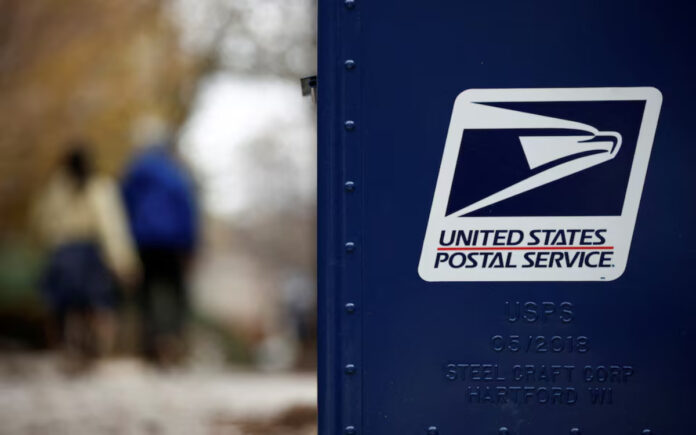Beijing/Washington: The U.S. Postal Service (USPS) has reversed its temporary suspension on parcel shipments from China and Hong Kong, reinstating service just days after President Donald Trump ended a key duty exemption used by retailers such as Temu, Shein, and Amazon to import low-value packages duty-free.
The abrupt policy shift has added to growing uncertainty among retailers and logistics firms as they scramble to adapt to Trump’s newly imposed 10% tariff on all Chinese imports and the elimination of the de minimis rule, which previously allowed duty-free entry for goods valued under $800.
Retailers Caught Off Guard
Industry experts say the rapid changes have left businesses struggling to keep up.
“We’re all running around like headless chickens at this moment in time, trying to second-guess what’s going to happen. And in two weeks’ time we may be back to normal,” said Martin Palmer, co-founder of Hurricane Commerce, a cross-border e-commerce data provider.
The Trump administration has justified the removal of the de minimis exemption by linking it to the entry of fentanyl and its precursor chemicals into the U.S. without adequate screening. Investigations by Reuters have also revealed that drug traffickers have exploited the exemption for illicit shipments.
In a statement, USPS said it was working closely with U.S. Customs and Border Protection (CBP) to develop an efficient tariff collection system while minimizing disruptions to parcel deliveries. However, it did not clarify whether its initial suspension of China-bound packages was directly tied to Trump’s order, which was announced on Saturday and took effect at 12:01 a.m. on Tuesday.
No Trump-Xi Talks Amid Rising Tensions
As of Wednesday morning, no call had been scheduled between Trump and Chinese President Xi Jinping to discuss the latest tariffs or Beijing’s retaliatory measures, according to a source familiar with the matter. Trump stated on Tuesday that he was in no hurry to engage with Xi.
The U.S. tariffs, which the administration claims target the influx of fentanyl, took effect at midnight on Tuesday. In response, China imposed its own tariffs on imports of U.S. coal, liquefied natural gas, crude oil, and agricultural equipment. Additionally, Beijing launched an anti-monopoly investigation into Google’s parent company, Alphabet.
Logistics and Retail Sectors Struggle to Adjust
Retailers and shipping firms were caught off guard by the sudden trade measures.
“There has really been absolutely zero time for anyone to prepare for this,” said Maureen Cori, co-founder of New York-based consultancy Supply Chain Compliance. “What we really need is direction from the government on how to handle this without warning or notice.”
The de minimis provision had been widely used by global e-commerce firms to expedite trade by consolidating shipments for mass customs clearance. With the exemption now removed, each parcel will require individual clearance, significantly increasing workload for postal services, customs brokers, and logistics firms.
CBP data shows that 1.36 billion shipments entered the U.S. under the de minimis exemption in 2024, marking a 36% increase from 2023 as online shopping continued to surge.
Also Read | Federal Judge Halts Trump’s Birthright Citizenship Order Nationwide
Increased Scrutiny and Rising Costs
Logistics provider Easyship has warned clients that shipments valued under $800 will now face stricter scrutiny. The company has advised businesses to establish U.S.-based distribution centers or partner with local warehouses and fulfillment centers to mitigate delays.
YunExpress, a major shipping firm, informed customers that packages would now be subject to the new 10% tariff in addition to the pre-existing 25% duties on steel and aluminum, as well as Trump’s Section 301 tariffs ranging from 7.5% to 25% on certain Chinese goods.
While some international couriers, including FedEx and SF Express—China’s largest express delivery company—have stated they will continue shipping to the U.S., FedEx has suspended its money-back guarantee for inbound U.S. shipments as of January 29, citing regulatory changes.
Deutsche Post-owned DHL has also said it is working to minimize disruptions to supply chains and reduce negative impacts on customers.
Retail Giants Shein and Temu Face New Challenges
Fast-fashion giant Shein and online dollar-store Temu have expanded rapidly in the U.S., benefiting significantly from the de minimis exemption. A 2023 report by the U.S. Congressional Committee on China estimated that these two companies alone accounted for over 30% of all de minimis shipments entering the U.S. daily. The same report found that nearly half of all packages processed under the exemption originated from China.
Shein and Temu have yet to respond to requests for comment on how they plan to adapt to the new restrictions.



